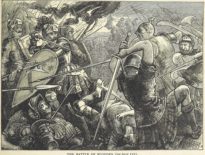Thank you to Wendy for submitting this question. Wendy wrote:
"Hi I am researching a novel set in 1495. In it my main character and his son are Grooms and Ushers to the King which would be Henry VII. It's a fictional story and the characters are fictional, but I have some questions:
How much freedom would they have? For instance is it likely that the King would dismiss them from court to go home at regular intervals? Would they be able to go home if they requested to because they needed to, or would they have certain times they are allowed home? They live in Somerset so I am estimating it will take them a few days to get home and a few more to get back."
Historian and historical novelist Toni Mount gave this answer:
I don't know that there is a definitive answer. Henchmen - trainee knights - were allowed to go home if family circumstances required it. Squires often served their lords turn and turn about, but the 'shifts' were likely to be measured in months: 3 months on and a month off, perhaps with two or three squires serving together, something like that. I suppose similar arrangements would apply to grooms and ushers, and they likely signed contracts agreeing terms of service. This was usual at all levels on the social scale.
Of course special events, like a coronation or military campaign would override all other agreements and it would be 'all hands on deck'. Likewise, unless the lord was an unfeeling rat, compassionate leave was usually granted to servants at all levels. Otherwise, it was service 24/7 as per the agreement.
If the question writer is concerned, she could invent a 'special' contract, laying out the terms of service of the protagonists with the king to cover whatever reasons they'll have to go to Somerset. Let's hope Henry VII is in a flexible mood. If Grandmother dies, it would be likely they'd get leave to attend the month-mind. Unless away on campaign, a father would be expected to visit a newborn, especially a son, to accept him as an heir. Revolting tenants on his land would be another reason to go home, and since this would involve 'keeping the king's peace', the king would be eager to have the trouble stopped for fear it might escalate into rebellion.



Leave a Reply